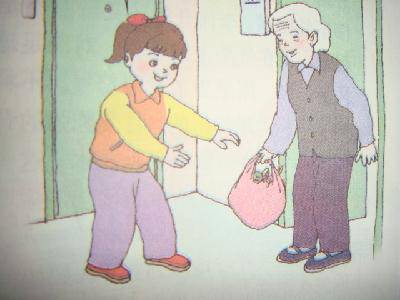Elderly widower Yao Jianshun and postgraduate student Feng Luchen were both initially wary when they first met to discuss the prospect of sharing a home over the summer.
Feng, 24, needed a place to stay for four months during an internship near Yao’s neighborhood, while the 64-year-old pensioner, partially paralyzed after a stroke 15 years ago, needed companionship after becoming isolated in his small attic apartment since the death of his wife.
Their first meeting in March to break the ice started frostily, but things quickly warmed up when Yao found out they were from the same hometown. In May, Feng was given the OK to move in.
“Feng is very kind to me,” Yao said after a few months. “Seeing I had a shabby old mobile phone, he bought me a used smartphone from one of his friends and taught me patiently how to use it. Now, I’ve learned how to order takeout online.”
The pair were brought together as part of a pilot program — launched this year in three neighborhoods of Wuhan, Hubei province — that aims to solve two problems: The loneliness experienced by many seniors, and the rent burden on college students.
About 25 percent of elderly people in Wuhan are classed as “empty-nesters” who are either childless or living far from their children. Around 40 percent of them are in poor health, according to the Hubei Committee on Aging.
Yanhuang Social Services Center, which organized the pilot, visited 1,300 households in the city’s Jianghan district starting in March and identified 144 candidates for the program. Most were elderly empty-nesters, with the rest being families in need of an extra pair of hands.
Meanwhile, an appeal for students willing to provide care and help around the house in exchange for free accommodations received 64 replies.
The number of volunteers was whittled down based on attitude, area of study and previous volunteer experience, while inventories were drawn up of the seniors’ homes to protect them against theft or damage, according to Jiang Jingjing, who led the program.
In the end, 35 pairs signed agreements for the summer.
“We invited housekeepers and teachers to give lectures to the young volunteers,” said Wei Fei, director of the Yanhuang center. “For volunteers paired with elderly people who require a lot of care, such as those with Alzheimer’s disease, we invited nurses to explain the condition in detail.”
Zhong Shuai, a junior at Hubei Youth Vocational College, moved in with 68-year-old Yu Manzhen, who cares for her paralyzed husband, 69, and their mentally ill son, 40.
“When I was young, my parents moved away for work and left me behind in a village with my grandmother. I’m often reminded of my dear grandma when I see Yu,” said the 21-year-old Zhong, who stayed with the family during his summer internship. “They offered me free shelter, which was a gift because my salary as an intern was low.”
He added: “Yu’s husband is funny and he seems to know everything. He knows the world political landscape pretty well and usually explains it to me. He also knows many brainteasers. I think the help was entirely mutual.”
Feng, who returned to his studies at Central China Normal University in September, said spending time with Yao was a “different experience”.
“It made me learn more about the demands of the elderly, and I think that knowledge will come in handy when my parents get older,” he said. “I’ll continue to visit Yao and keep him company whenever I have time.”


留言
您必须登陆 才能发表评论。